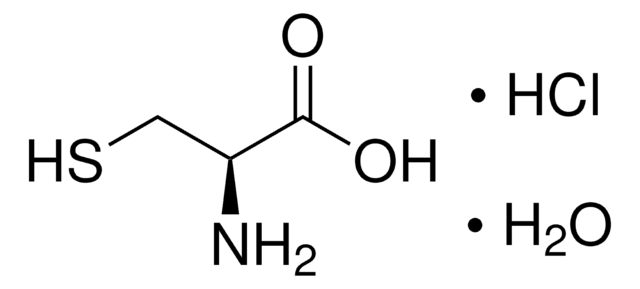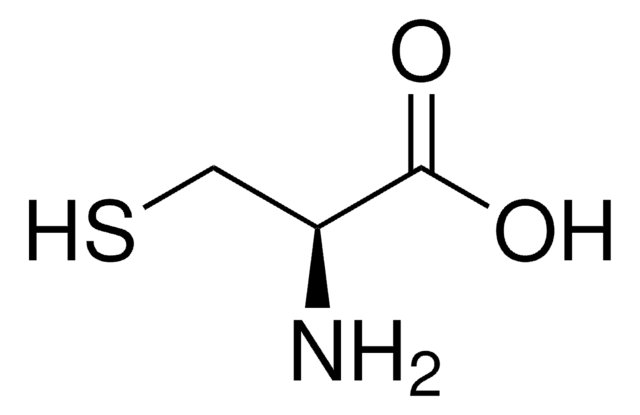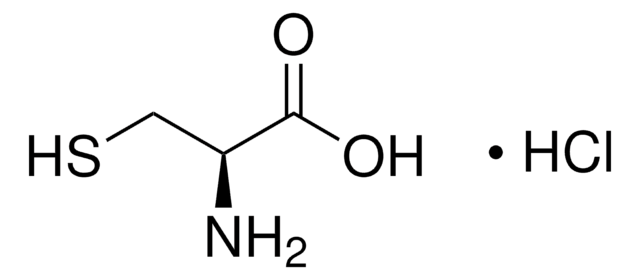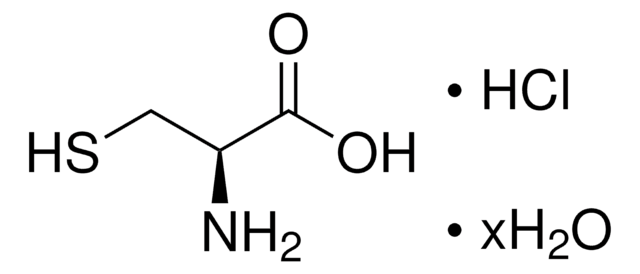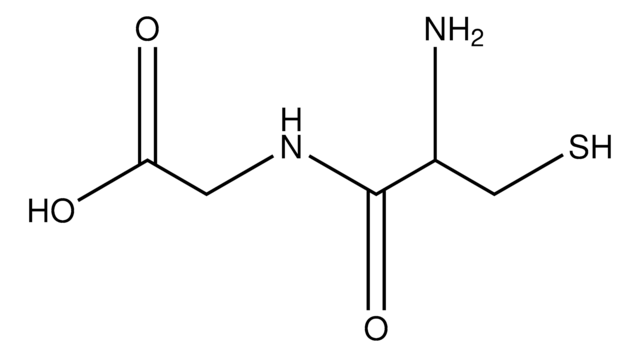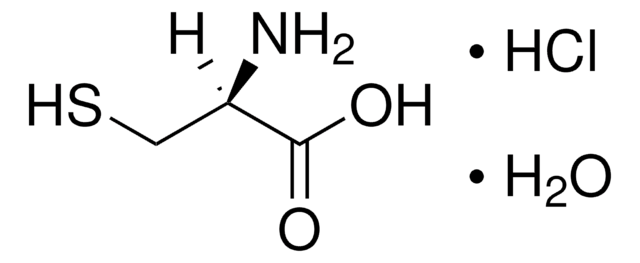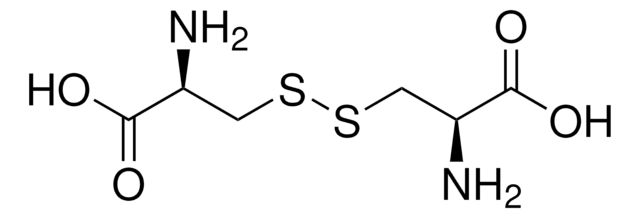30129
L-Cysteine hydrochloride monohydrate
BioUltra, ≥99.0% (RT)
Synonym(s):
L-Cysteine hydrochloride hydrate (1:1:1)
About This Item
Recommended Products
product line
BioUltra
Quality Level
assay
≥99.0% (RT)
form
crystals
optical activity
[α]20/D +5.6±0.3°, c = 5% in 5 M HCl
impurities
insoluble matter, passes filter test
≤0.5% foreign amino acids
ign. residue
≤0.05% (as SO4)
color
white
solubility
H2O: 1 M at 20 °C, clear, colorless
anion traces
sulfate (SO42-): ≤200 mg/kg
cation traces
Al: ≤10 mg/kg
As: ≤0.5 mg/kg
Ba: ≤5 mg/kg
Bi: ≤5 mg/kg
Ca: ≤10 mg/kg
Cd: ≤5 mg/kg
Co: ≤5 mg/kg
Cr: ≤5 mg/kg
Cu: ≤5 mg/kg
Fe: ≤5 mg/kg
K: ≤50 mg/kg
Li: ≤5 mg/kg
Mg: ≤5 mg/kg
Mn: ≤5 mg/kg
Mo: ≤5 mg/kg
NH4+: ≤500 mg/kg
Na: ≤100 mg/kg
Ni: ≤5 mg/kg
Pb: ≤5 mg/kg
Sr: ≤5 mg/kg
Zn: ≤5 mg/kg
λ
1 M in H2O
UV absorption
λ: 260 nm Amax: 1.0
λ: 280 nm Amax: 0.3
SMILES string
O.Cl.N[C@@H](CS)C(O)=O
InChI
1S/C3H7NO2S.ClH.H2O/c4-2(1-7)3(5)6;;/h2,7H,1,4H2,(H,5,6);1H;1H2/t2-;;/m0../s1
InChI key
QIJRTFXNRTXDIP-JIZZDEOASA-N
Looking for similar products? Visit Product Comparison Guide
Related Categories
Biochem/physiol Actions
Storage Class
11 - Combustible Solids
wgk_germany
WGK 1
flash_point_f
Not applicable
flash_point_c
Not applicable
ppe
dust mask type N95 (US), Eyeshields, Gloves
Certificates of Analysis (COA)
Search for Certificates of Analysis (COA) by entering the products Lot/Batch Number. Lot and Batch Numbers can be found on a product’s label following the words ‘Lot’ or ‘Batch’.
Already Own This Product?
Find documentation for the products that you have recently purchased in the Document Library.
Customers Also Viewed
Articles
Antioxidants protect biological systems from oxidative damage produced by oxygen-containing free radicals and from redoxactive transition metal ions such as iron, copper, and cadmium.
Our team of scientists has experience in all areas of research including Life Science, Material Science, Chemical Synthesis, Chromatography, Analytical and many others.
Contact Technical Service